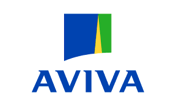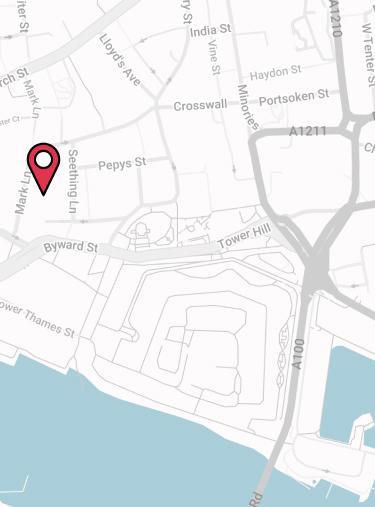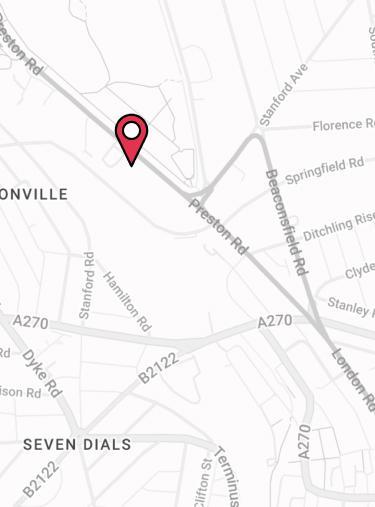
Income Protection For Company Directors
Running your own business is an exciting endeavour. But as a company director working for yourself, there’s often little or no sick leave benefits if you need to take time off work. Whether your absence is due to illness or injury, being unable to work is likely to cause some financial worry.
If you’ve come here searching for a way to protect your income, you’re in the right place. This guide covers all you need to know about Directors Income Protection, such as the costs involved, how it’s taxed and your policy options.
What Is Directors Income Protection?
Income Protection for company directors is an insurance policy designed especially for directors. It provides a monthly income to cover your core outgoings if you’re unable to work due to accident or sickness. A policy can:
- Protect up to 80% of your salary and dividend drawdown from your own company
- Be owned and paid for by your limited company
- Cover your regular financial commitments, such as your mortgage/rent, loans/credit cards, food and bills
- Pay out from as short as 1 week of illness or injury
- Protect your income right up until your expected retirement age.
Why Is Directors Income Protection Important?
While some directors may have savings to fall back on, it’s not the case for everyone. And since directors working via their limited company often have very little in terms of sick pay entitlement, how would you cover your core outgoings?
You still need to pay for your mortgage/rent, household bills and general day-to-day expenses, which is where Directors Income Protection shows its importance. It can provide a helpful financial lifeline if you’re unable to work.
SPECIALIST TIP 🤓
According to consumer group Which?, Income Protection is the one policy every working adult should consider.
Income Protection Client Stories
How Does Income Protection For Directors Work?
Income Protection for Directors works in a similar way to standard Income Protection. You take a policy out and should you be unable to work due to accident or sickness, you will receive a monthly benefit. This benefit can then be used to cover your monthly outgoings.
How you pay for Directors Income Protection is where its key difference lies. Unlike a personal plan, it can be paid for through your limited company. This usually offers significant tax savings. Not only this, in the event of a claim, rather than the benefit amount being paid directly to you, it would be paid to your company to then be forwarded on. We discuss this in more detail later on.
Policy Factors To Consider When Taking Out Directors Income Protection
When taking out Income Protection as a company director, it’s important you get it right. There are many terms you need to understand and things to consider to ensure you get the best policy. We go through these below.
How Much Income Protection Cover Do You Need?
It’s possible to cover anywhere from 50% to 80% of your gross (pre-tax) salary and dividend income as a benefit each month. How much cover you need will depend on your own personal circumstances.
To cover dividends, you must be a director who’s actively contributing to the success of the limited company. This can either be as part of a team or as the sole employee of the company. The dividend payments must be paid to you in lieu of salary for work undertaken.
When choosing your level of cover, consider your core outgoings first, rather than opting for the maximum cover. The more you cover, the higher the monthly premiums.
SPECIALIST TIP 🤓
Some insurers allow you to include your partner’s dividends, as long as they hold a non-revenue generating role within your business.
Setting Your Deferred Period
The deferred period is the length of time you would be off work sick or injured before your insurer begins paying out. Deferred periods can range from one week to over a year. It’s important to work out how long you could survive on any savings or sick pay before you need the policy to kick in.
Longer deferral periods reduce premiums notably, compared to shorter ones. So, if you can afford to wait a little longer, you’ll pay less each month for your policy premium.
How Long Do You Need Cover For?
This refers to the age the cover will end. Most people align it to the age where they anticipate retiring. Many providers run policies all the way up to the age of 70. However, this will be significantly more expensive than cover that stops at age 60.
Short Term Or Long Term Cover?
Short-term plans pay out for a maximum of 1, 2 or 5 years per condition, per claim. Long-term policies continue paying out either until you are well enough to return to work or you reach the end of the policy.
While short-term cover for 1, 2 or 5 years may feel like a long time, there are many serious illnesses that could leave you unable to work for longer.

We recommend long-term protection if you can afford comprehensive cover. No one can predict what might happen and if you receive a long-term diagnosis, you’ll want your finances covered.
Rauri Taylor
Independent Protection Specialist
Reviewable, Age-Banded Or Guaranteed Premiums?
When buying Income Protection, you have three types of premiums to choose from:
- Reviewable premiums
Can be ‘reviewed’ as the insurer sees fit. This means they may rise in a variety of circumstances. E.g. if the insurer has seen an increase in claims or based on economic factors. These premiums usually start out cheaper but often work out more expensive over the life of the policy - Age-banded premiums
These also work out cheaper to begin with, but then steadily rise each year. Unlike reviewable premiums, age-banded premiums can only rise by a preset amount laid out in your policy documents. These increases are linked to your age and the increasing risk of you claiming as you get older - Guaranteed premiums
Guaranteed premiums will seem more expensive initially, but cannot be adjusted over the life of the policy unless you make any changes to the plan. This generally means it works out cheaper over the life of the policy. This is especially true if you take out cover when you’re young and healthy. Premiums are locked in from the start and can’t be changed.
Do I Need To Index Link My Policy?
With Company Director Income Protection, you can index link your level of benefit. Indexation ensures your monthly benefit increases each year in line with inflation. Your insurer will review any changes to the Retail Price Index (RPI) and review your policy. Then they will adjust your cover accordingly to avoid a decrease in value.
GOOD TO KNOW 🤓
If you do choose to index link your policy, this will increase the amount you pay for your monthly premiums.
The Definition Of Incapacity
The definition of incapacity is important, as it’s how the insurer determines whether you are fit to work or not and able to make a claim.
There are three main definitions of incapacity to consider for your Directors Income Protection:
- Own Occupation Cover
Own occupation cover protects you as long as your injury or illness prevents you from working in your specific job role. For example, an architect who injures their hand wouldn’t be able to complete technical drawings and therefore, could make a claim.
- Suited Occupation
You must be unable to undertake your current job role and any other job where you may have experience or education to perform. If you’re unable to do your current duties but you have experience and skills in another role, suited occupation cover wouldn’t pay out. - Any Occupation / Work Tasks
You can only claim if you can’t work in any occupation or perform a set number of tasks required at most basic jobs. This definition of incapacity is the most difficult to claim on and is best avoided.

We always recommend own occupation for company directors, as it will cover your own work duties.
Other definitions of incapacity, such as ‘Suited Occupation’ or ‘Any Occupation’, may limit your ability to claim if you’re well enough to work in another role.
Rauri Taylor
Independent Protection Specialist
What Does Company Directors Income Protection Cover?
Income Protection for company directors can pay out up to 80% of your combined salary and dividends if you can’t work due to illness or injury. It covers:
- Accidents and bodily injuries
- Periods of sickness and illness.
The policy protects your income if a health condition or injury stops you from working. Providing you opt for ‘own occupation’ cover, this will cover you if you can’t work in your specific role as a director.
Does It Cover Pre-Existing Conditions?
When you apply for Income Protection, the insurer will ask about your medical history. These questions focus on your health, particularly over the past 5 years. You may even be asked to undergo a medical check prior to getting cover.
If you disclose a medical condition, your insurer might:
- Cover the condition on standard terms
- Cover the condition for an additional premium
- Exclude the condition but offer a date at which it will consider reviewing the exclusion
- Exclude that condition entirely (perhaps with a premium discount to compensate).
If you have any pre-existing health conditions that may impact your cover level, it’s best to discuss your situation with a financial adviser to ensure you get suitable cover.
If you need help, please don’t hesitate to pop us a call on 02084327333 or email help@drewberry.co.uk.
Are There Any Exclusions?
As with most insurance policies, there are a few automatic exclusions. For instance, most policies don’t pay out for illnesses or injuries:
- That occur in pursuit of criminal acts
- Caused by illegal or illicit drugs, or of alcohol / substance abuse
- That occurs during travel to countries with political instability, areas of active conflict, high terrorism risk, that the Foreign Office has advised against travel to, or where there are active epidemics.
Other than these, there are few standard exclusions. Your insurer determines what you’re covered for based on your pre-existing medical history.
Do I Need Directors Income Protection?
No one wants to think about becoming unwell or getting injured, but it’s important to look at the risk of this happening. Doing so can help you plan ahead and ensure that, if you’re unable to work, you are financially covered.
So when you ask yourself the question ‘do I need Directors Income Protection?’ it’s important to think about the following.
Your Incapacity Risk
Many of us simply don’t believe poor health will ever be a problem, or that we’ll suffer a life-changing accident. But the reality is, you can’t predict the future and you’re actually more at risk of developing a condition than you may think.
- 5 million people of working age suffered from anxiety or depression in 2023
- Nearly 1 million were economically inactive due to problems with their back and neck
- The likelihood of a cancer diagnosis between the ages of 25-49 has increased 22% since the 1990s.
Could You Survive On Statutory Sick Pay?
Company directors are employees, so most are entitled to Statutory Sick Pay. This is £109.40 per week. Your employer — i.e. your limited company — pays this for up to 28 weeks. However, few small companies offer their directors paid sick leave above this.
Even if you have considered paying sick pay, there may be a lack of funds within your business if you’re unable to generate revenue.
What About State Benefits?
One of the main government incapacity benefits is Employment and Support Allowance (ESA). This can pay up to £84.80 per week, depending on the severity of your disability.
For many company directors, ESA wouldn’t fully replace their usual income if they’re off work ill or injured. While other state benefits are available, these often have strict eligibility and depend on your condition.
Could You Rely On Your Savings?
Our recent Drewberry™ Employee Benefits survey found that 1 in 5 employees don’t have enough savings to last more than a week. Considering the average UK household expenditure is £481.50 per week, many people don’t have savings to cover this.
Why Finance Blogger Mrs Mummypenny Recommends Income Protection…
This is why self-employed personal finance author and blogger Mrs Mummypenny took out Income Protection. She sought out the valuable peace of mind protection products can offer.
How Much Does Income Protection Insurance Cost For Directors In 2023?
The cost of Directors Income Protection depends on your specific job role and a variety of other factors. Below are some examples of the costs depending on factors, such as the provider, your age, and whether you smoke.
1. The Provider
Each Directors Income Protection provider will charge a different monthly premium. This is because each one has its own appetite for risk and can offer different services and benefits. So it’s always good to shop around.
To show how monthly premiums can differ from provider to provider, we’ve pulled some quotes below. These are assuming:
- A monthly benefit of £1,500
- You’re a healthy non-smoker aged 40
- An 8 week deferral period
- A cease age of 65
- Long-term cover.
Different Providers | |
|---|---|

| 
|
£35.54 | £58.70 |
2. Your Age
The older you are at the start of your policy, the higher your premiums. This is due to the increased risk of sickness or injury as you age.
Below are some example monthly premiums for company directors of differing ages using the same policy options as above. These are for guaranteed premiums.
30 | 40 | 50 |
|---|---|---|
£24.18 | £35.54 | £55.21 |
3. Your Medical History
Insures may increase the cost of your policy if you have a pre-existing medical condition at the time of applying. Or they may decide to exclude it altogether.
Pre-existing conditions are normally excluded due to the long-term treatment and medication needed, which would increase the cost for the insurer.
4. Smoker Status
Smokers put themselves at a higher risk of developing a health condition. Some insurers charge higher premiums if you smoke. Not every insurer, though.
Here’s an example of the difference in cost per month for a non smoker and a smoker. This is based on the above policy options for a 40-year-old.
Smoker Vs. Non Smoker | |
|---|---|
🚬 | 🚭 |
£46.47 | £35.54 |
5. The Deferred Period
Insurers offer deferred periods of 4, 8, 13, 26, or 52 weeks. The longer this period, the lower your premiums will be, as the insurer doesn’t have to pay out straight away.
Here are some example costs of policies with different deferred periods. These are based on the previously used policy options from above, just with the deferred period changed.
Length Of Deferred Period | Cost Of Policy |
|---|---|
4 weeks | £43.23 |
8 weeks | £35.54 |
13 weeks | £23.76 |

You can see how a longer deferred period reduces premiums, but opting for a 13 week wait should only be considered if you can live off savings etc. for that length of time.
If you’d like personalised quotes, you can use our Income Protection comparison tool to compare quotes from the top UK insurers.
Sophie Guiver
Independent Protection Specialist
How Is Company Director Income Protection Taxed?
When you buy personal Income Protection, paid from your personal bank account, the insurer pays the benefit tax-free if you claim. This is because you’ve already paid tax on the money you paid the premiums with.
However, with Income Protection for company directors, your limited company pays the premiums. HMRC usually grants your company corporation tax relief on these premiums, so you don’t pay tax on them.
HMRC then taxes the benefit to compensate. In the event of a claim, the insurer pays the benefit to your company, as the company is the owner of the plan. It’s then up to you to distribute these funds tax-efficiently with your accountant.
When you distribute the benefit from your company as income, HMRC taxes the payout at this point, like how it taxes your earnings.
Grossing Up Your Benefit
To compensate for the fact HMRC taxes the benefit, insurers let you protect up to 80% of your earnings through Directors Income Protection. This is compared to a maximum of 70% with a personal plan.
Is Director Income Protection a P11D / Benefit in Kind?
P11D / benefits in kind are benefits, such as company cars or mobile phones, an employer offers staff. HMRC taxes employees for these. Some insurance policies, like Private Health Insurance, are benefits in kind, while others aren’t.
HMRC does not consider Income Protection for company directors as a P11D / benefit in kind. This means there’s no extra tax to pay.
How To Make A Claim? Will It Pay Out?
If you’re considering Director Incomes Protection, you’ll want to know you can guarantee a pay out if you need to make a claim.
We have a claims team to support you through the process and make it as smooth as possible so you can focus on your recovery. The general process when making a claim is as follows:
- You develop a health problem that stops you from working
- You contact your insurer as soon as you are unable to work
- Fill in a claims form—most providers let you do this online. Expect to provide evidence of your illness or injury. For example, a doctor’s note or diagnosis from a consultant
- If your provider approves your claim and you’re still too unwell to work at the end of your deferred period, your monthly benefit begins
- You receive the benefit until you recover and return to work, reach your claims limit (for short-term protection), or reach your cease age.
In 2022, leading insurers Liverpool Victoria and The Exeter paid out over 92% of valid Income Protection claims.
Neil’s Cancer Claim With British Friendly
Neil is a client of Drewberry and took out an Income Protection policy with British Friendly. He was a member for 4 years before he needed to claim.
He became unwell and had pains in his stomach. After consulting his GP and having further tests, Neil was diagnosed with Stage 2 Bowel Cancer and needed to make a claim. Find out more about Neil’s claim 👇.
Do Insurers Pay Their Claims?
We run an annual protection survey to find out what the UK public thinks about protecting their finances. Each time the results come in, we find that most people heavily underestimate just how many claims are successfully paid out.
Below is a table of the top UK insurers and their successful claim payout rates for the last few years. As you can see, most insurers pay out well over 90% of claims.
Insurer | 2022 | 2023 | 2024 |
|---|---|---|---|
Zurich | 85% | N/A | 95.8% |
Vitality | 96.5% | 95.4% | 91.9% |
Cirencester Friendly | 95.4% | 95.8% | 95.8% |
Holloway Friendly | 93.4% | 86% | 88.3% |
British Friendly | 90% | 89% | 86% |
Liverpool Victoria | 92% | 92% | 90% |
The Exeter | 92% | 96% | 93% |
Aviva | 92.5% | 90.1% | 92% |
Legal & General | 82.2% | 80% | 84% |
Income Protection Product Reviews
Who Is The Best UK Provider Of Company Directors Income Protection In 2023?
There are three major insurers offering Income Protection for company directors:
- Aegon
- Legal & General
- Unum.
However, if these aren’t suitable, there’s a wide market for personal policies that you pay for as an individual, out of your own bank account.
You can find specialist reviews for each of the insurers we work with below. Our guide to the best Income Protection Policies in the UK may also be useful.
It’s worth noting that Aegon and Legal & General offer both personal cover and cover for directors.
Remember, it’s not always the cheapest plan that’s the best—policies and providers vary considerably. Compare premiums from the top UK insurers with our Income Protection quote tool.
Providing Income Protection Insurance For Employees
If there are a number of directors and/or employees you’d like to offer Income Protection to, Group Income Protection may be more relevant to your needs. Unlike directors’ cover, Group Income Protection protects an entire team rather than a single employee.
If any employees on the policy become ill or suffer an injury, the insurer will pay out their benefits to the company. The business then uses this benefit to pay the employee’s salary.

Group policies usually require at least five employees to be able to set up a scheme. In terms of cost and cover, they can vary depending on your insurer, the size of your team, and your employees’ circumstances.
If you think a group policy would be more suitable for your needs, don’t hesitate to get in touch. Pop us a call on 02084327333 or email help@drewberry.co.uk.
Nadeem Farid
Head of Health & Wellbeing Benefits
Common Director Income Protection Questions
How long before I can claim on my Directors Income Protection?
With Income Protection, there’s no initial qualifying period. This means if you take out cover and are unfortunate enough to become ill / injured the following day, you’re covered.
But there’s the deferral period to consider. This refers to how long you need to be out of work before you can make a claim.
The deferral period can be as short as 1 week or as long as 6 months. It’s up to you when you set-up your policy. Should a claim arise, you’ll start receiving your benefit once you have been out of work longer than your chosen deferred period.
Is Directors Income Protection a P11D benefit?
No, Directors Income Protection is not considered a P11D / Benefit in Kind. That means there’s no additional tax to pay as a result of having a policy as a company director.
Can you claim on Directors Income Protection more than once?
Traditional Long-Term Income Protection for company directors protects your earnings throughout your working life. You’re able to make as many claims as you need to. Anytime you find yourself too unwell or injured to work, you can make a claim.
Can contractors get Directors Income Protection?
Contractors who work through their limited company with no employer sickness pay have a real need for Income Protection. Through their limited company, they can take out Directors Income Protection and the premiums can be paid for by their business.
But a sole trader would need to set-up a personal policy. The premiums of which would be paid from their net income.
Compare Director Income Protection Quotes & Get Specialist Advice
Due to how it’s taxed, Income Protection for company directors is more complicated than a personal policy. As such, we highly recommend getting specialist advice when considering your Directors Income Protection. Our team can help you find the right policy and ensure you have the cover you need.
We are here to help, please do not hesitate to pop us a call on 02084327333 or email help@drewberry.co.uk.
Why Speak to Us?
When it comes to protecting yourself and your finances, you deserve first-class service. Here’s why you should talk to us:
- There’s no fee for our service
- We’re an award-winning independent insurance broker, working with the leading UK insurers
- You’ll speak to a dedicated specialist from start to finish
- 4090 and growing independent client reviews rating us at 4.92 / 5
- Claims support when you need it most
- We’re authorised and regulated by the Financial Conduct Authority. Find us on the financial services register.
Contact Us
125-135 Preston Road
Brighton
BN1 6AF
Cookies
Drewberry™ uses cookies to offer you the best experience online. By continuing to use our website you agree to the use of cookies including for ad personalization.
If you would like to know more about cookies and how to manage them please view our privacy & cookie policy.






















